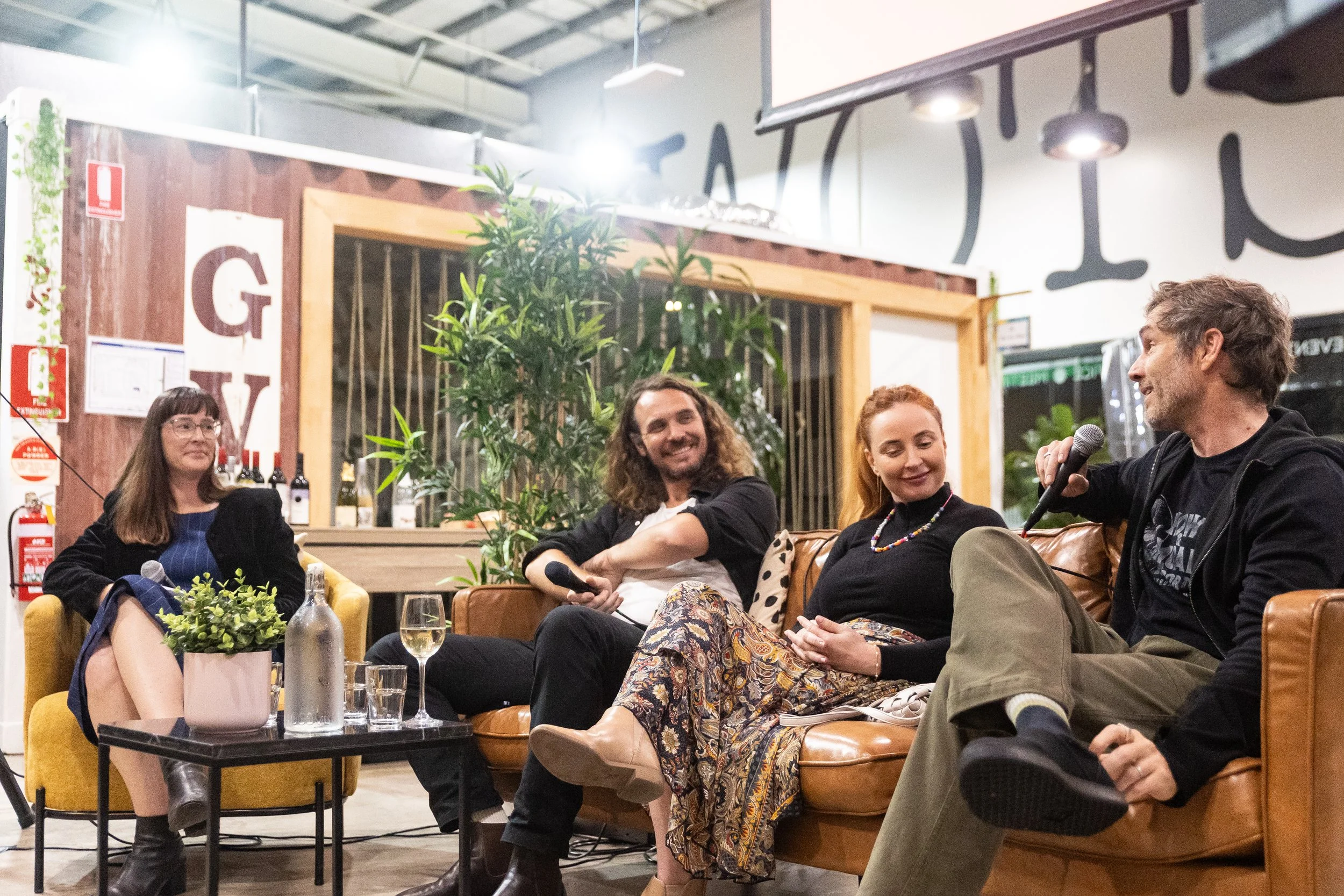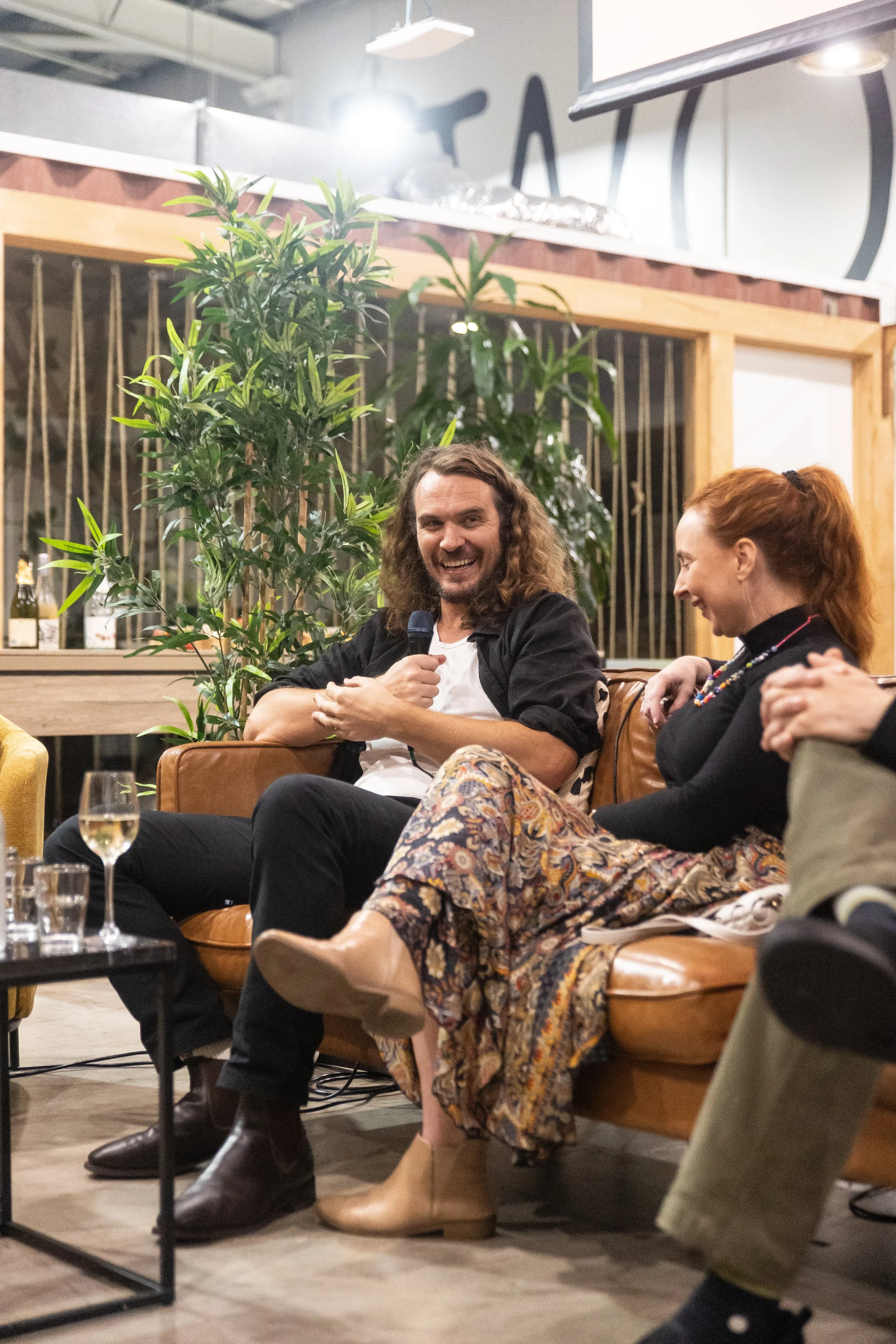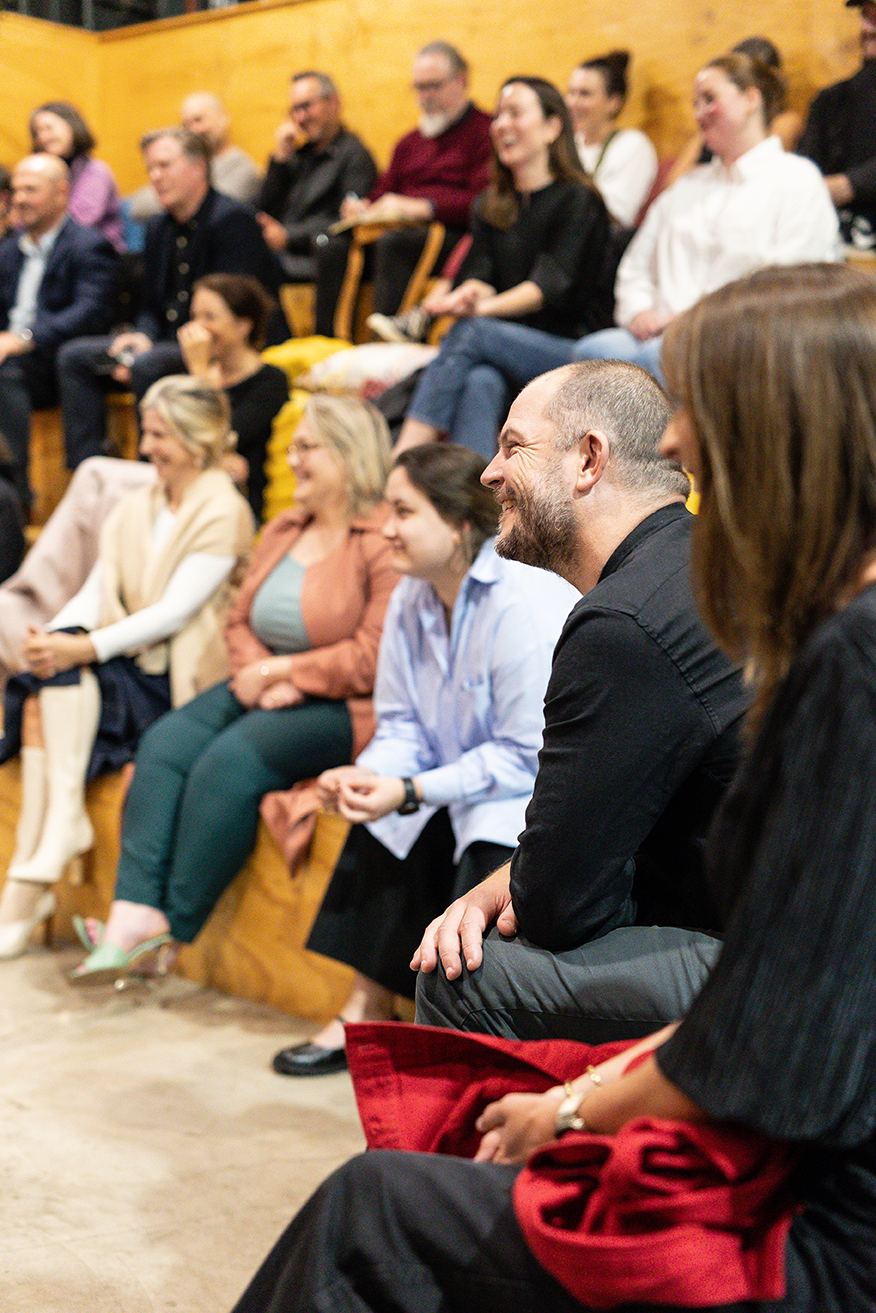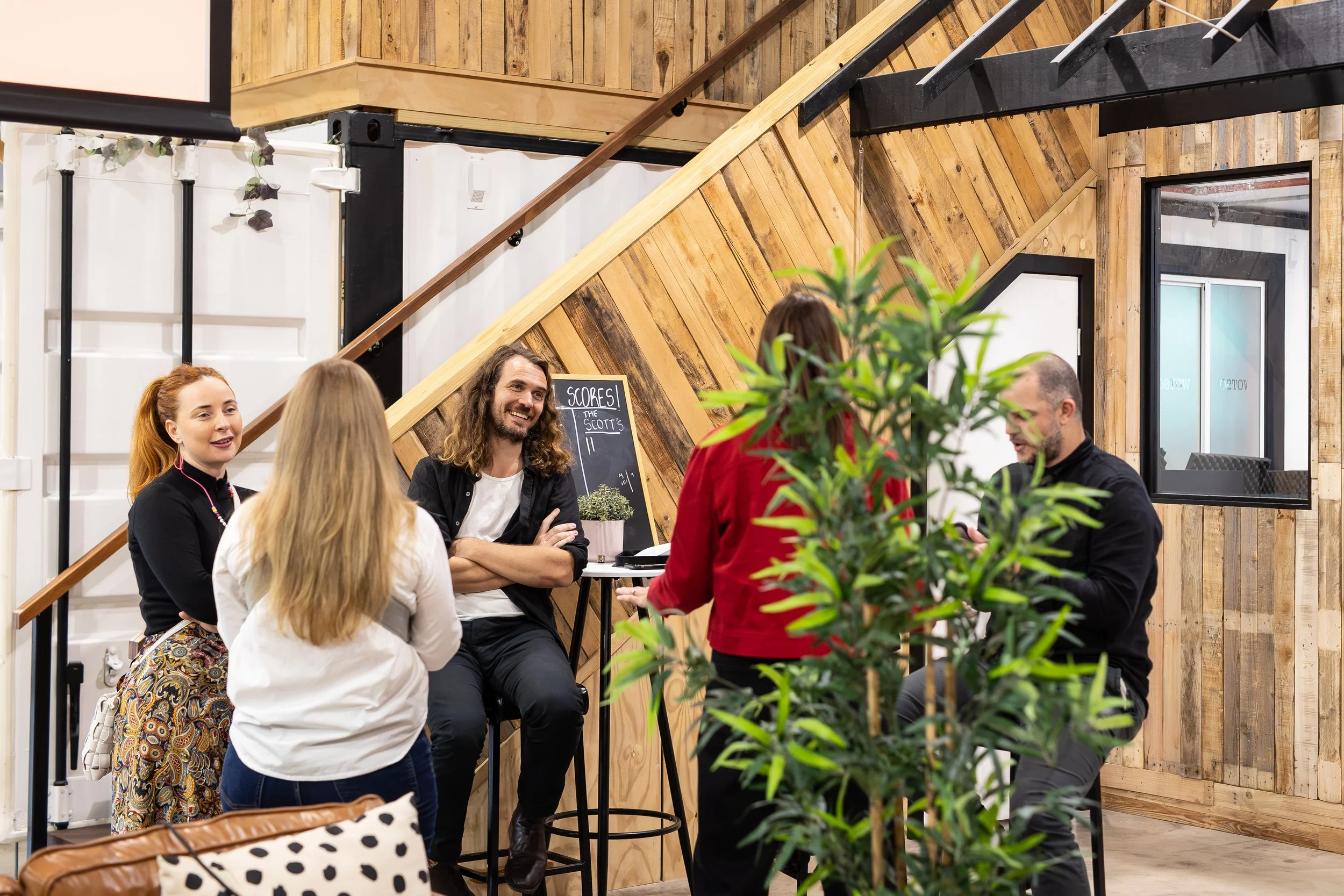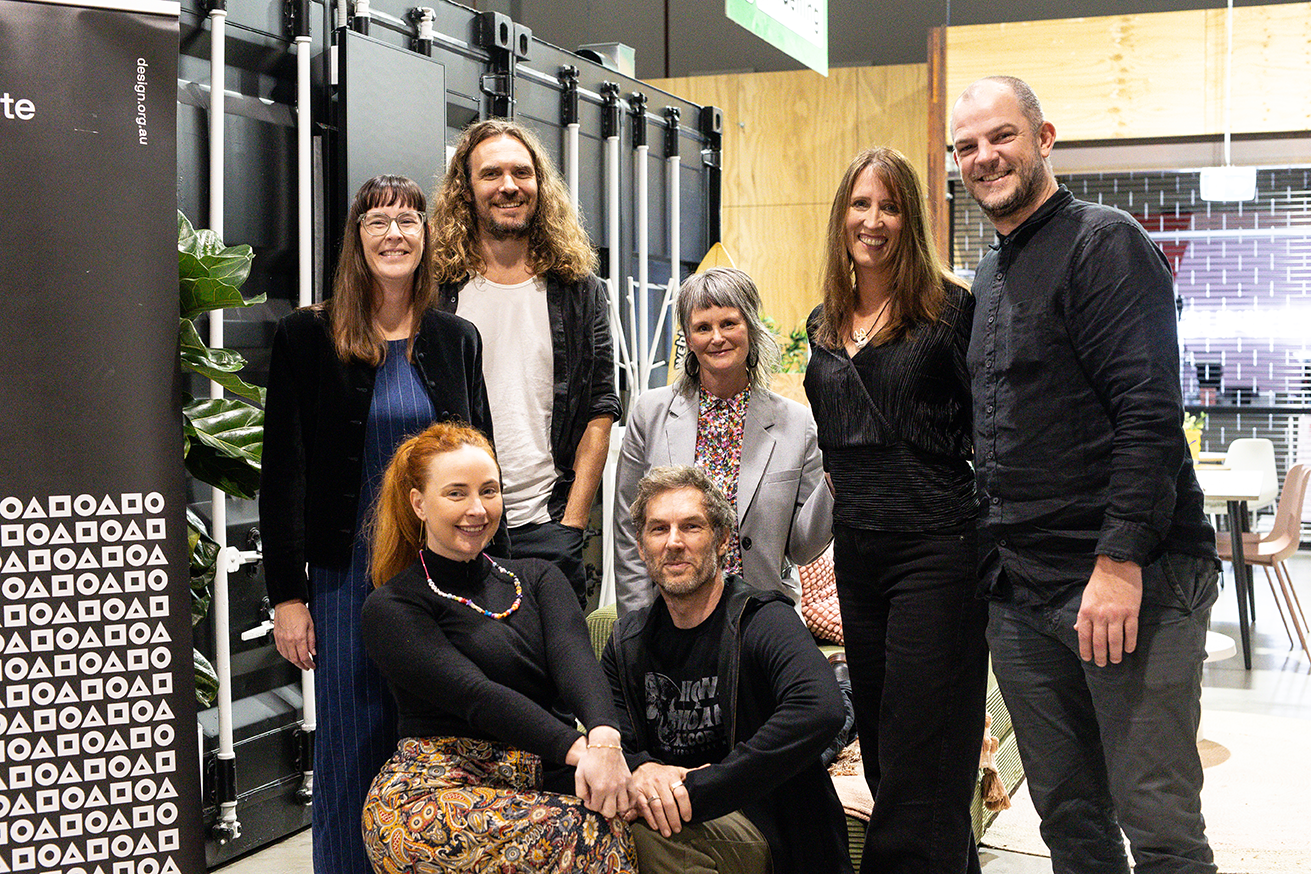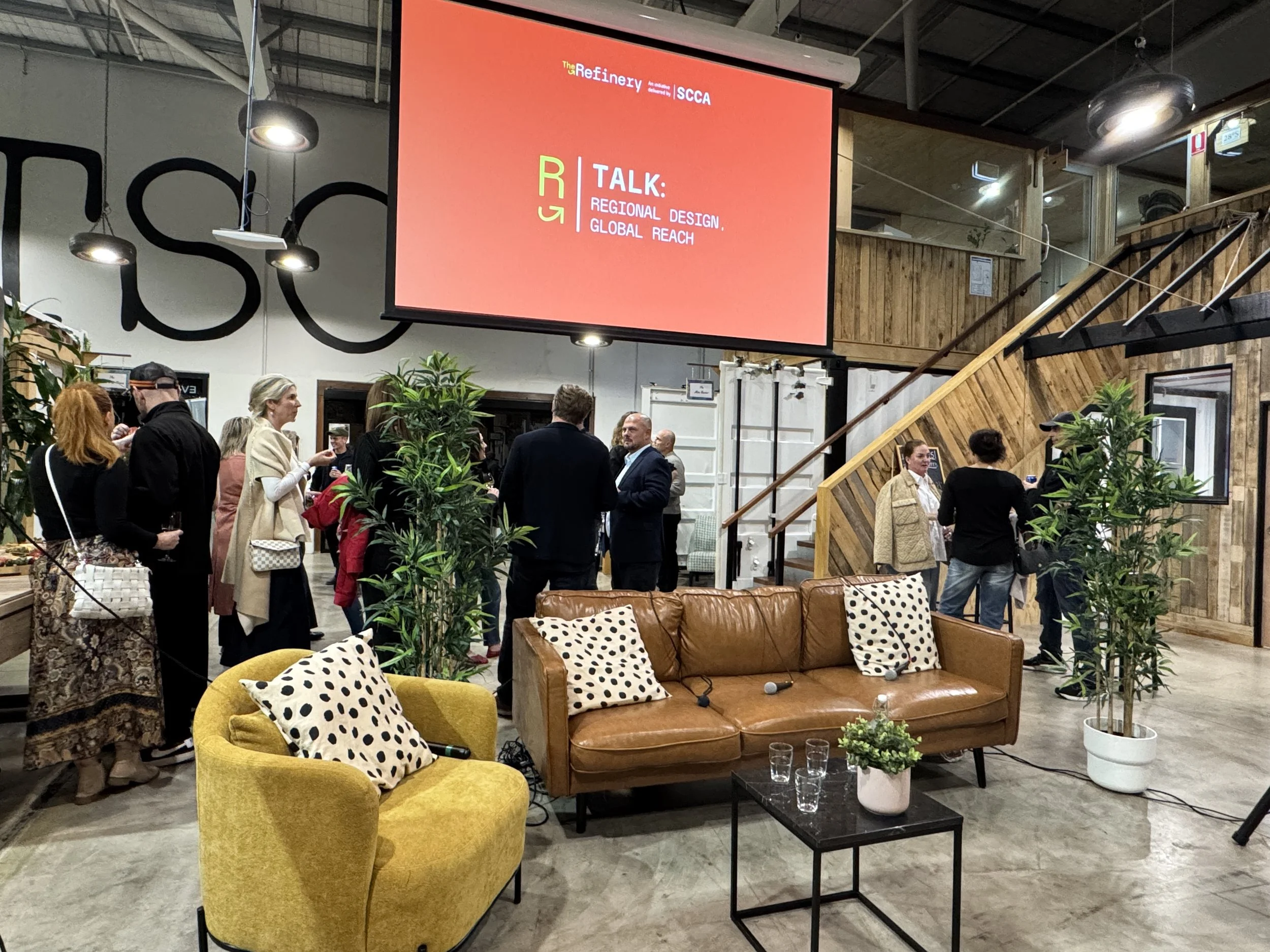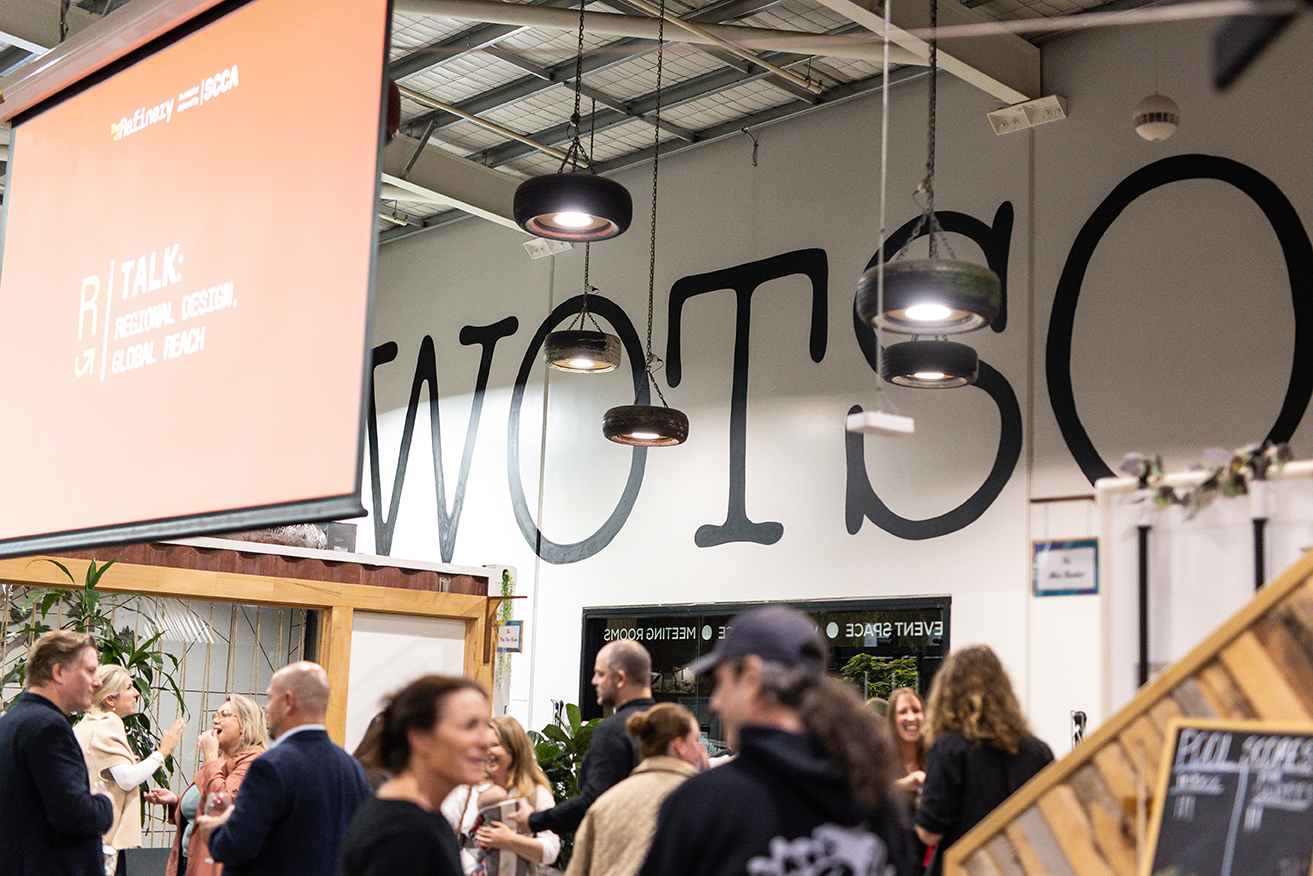R|Talks Reveals How Regional Designers Can Shape the World
The Refinery’s series of RITalks events are a chance for the community to gather and hear from some of the best in the business. For the RITalk: Regional Design, Global Reach, a curated panel of Charlie Sutton, Head of Design at Atlassian, Adelaide Coman, Sustainability Innovator at Stanford University and Allan Walker, Founder of Numeral Studio, offered candid reflections on how to live and work regionally, while shaping ideas that reach far beyond your postcode.
Working in partnership with Design Institute of Australia, the panel discussion was expertly facilitated by Dr Colleen Morgan of Josephmark, to a receptive audience of design thinkers and creative entrepreneurs gathered at the WOTSO co-working and event space in Sippy Downs.
Allan began the discussion sharing his decision to leave the city grind behind, moving his young family to regional New Zealand before settling in his current home in the Northern Rivers region of New South Wales. For Adelaide, whilst growing up on the Sunshine Coast fostered a deep sense of connection to this area, an ambitious curiosity for how her work might resonate globally drove her to apply for her recent position at Stanford University. Charlie, also based in the Northern Rivers region, spoke to the ‘placelessness’ of digital design, and how living regionally grounded him in community, where people cared less about his title and more about whether he turned up for Landcare.
With the panellists referencing their work within North America teams and often being ‘the only Aussie in the room’, managing the nuance of cultural difference was declared a shared experience. Observing that while Australia shares English as a ‘common language’ with many across the globe, cultural and geopolitical understandings are also an essential pillar in the building of global teams. Charlie shared his experience of working with teams in the Ukraine, where workers are often troubled by safety concerns due to the ongoing war and urged us all to consider not only the perspective of ourselves as Australians working within a global context but the flip side of those pressures from others in the team.
Allan’s example of managing cultural expectations in global teams referenced working with a large South Korean-based multi-national firm, whose workplace culture of long hours was in contrast to the nine-to-five mindset of his firm who try their best to balance work & family life. This cultural difference momentarily risked the perception that Numeral Studio was not taking the work seriously. The solution proposed was proactive, transparent communication from the outset and clarity on how time was spent on the project. The introduction of an overtime rate to manage situations where extra work was required was the compromise achieved to meet each parties’ needs.
Acknowledging that technology and connectivity has allowed more capacity for regional designers on the global stage, keeping teams on the same page without the richness of face-to-face interaction remains a challenge. Charlie spoke to the importance of small but powerful workplace rituals within an online context: checking in with colleagues at the beginning of a video call, separate non-task oriented short calls and being mindful of more introverted teammates who prefer one-on-one conversations. Another approach suggested was using small physical and tangible items to build team culture, one experiment was the use of t-shirt merchandise to create a sense of working together, whilst working remotely.
Audience members were keen to hear the words of advice for regional designers aiming for global impact and the panel’s message was clear: Lift your gaze to a broader horizon and ask themselves a simple question, ‘What could my business look like if I served a global audience?’.
Adelaide encouraged the audience to give themselves permission to be bold, citing the late Sunshine Coast personality, Steve Irwin and the unorthodox path he took to success as proof that authenticity and belief in yourself can carry just as much weight as credentials.
No design talk is complete without mention of the impact of AI with the panel concluding that with its rise, there has never been a better time to influence global design from the regions.
Audience questions explored the realities of being a designer in a world marked by global conflict, migration, and rapid change, but ended with the positive unifying message: regional does not mean limited. In fact, it may offer the very vantage point needed to design with perspective, empathy, and a sense of place that is increasingly rare on the global stage.
Photos by Cynthia Lee.
RITalk: Regional Design Global Reach is delivered as part of The Refinery, SCCA’s suite of professional development programs designed to support creative practitioners working at the intersection of art, technology, environment and design and presented in partnership with the Design Institute of Australia
The Refinery is supported by Major Partners: Queensland Government through Arts Queensland, Sunshine Coast Council through the Regional Arts Development Fund, and the Creative Ecologies Research Cluster at UniSC, and Media Partners: In Publishing (Hello Sunshine Magazine and IN Noosa Magazine).
Sign up for updates and be the first to know about our next R|Talks.


